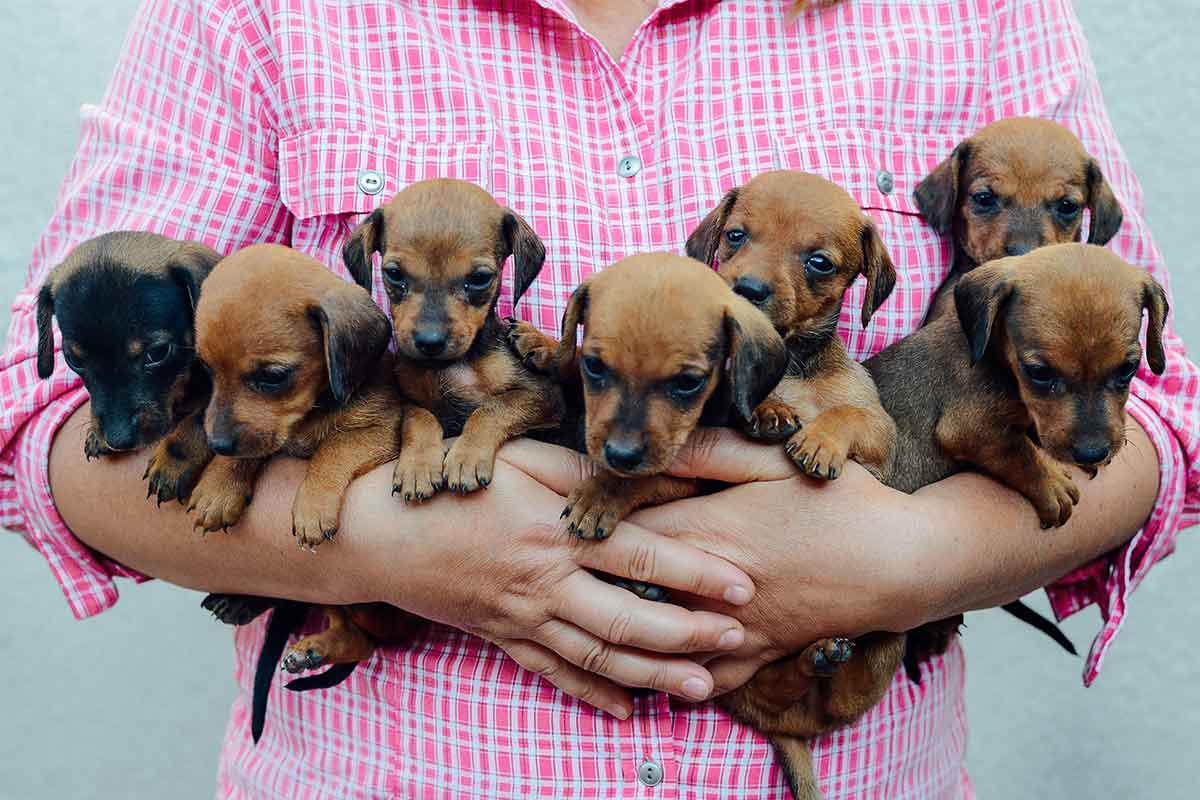When you are looking to add a puppy to your family, it pays to consider purchasing from a responsible breeder. Basic reasons include predictability of size, coat type, and behavior. Conscientious and careful breeders check the health of a pup’s parents before breeding them. That is not an ironclad guarantee of good health, but it improves the odds that a puppy will have good health throughout life. A responsible breeder is not only available to guide you for the life of your new dog but is also prepared to take your dog back at any time if for any reason you can no longer keep him.
But there is another, often forgotten, reason to get your pup from a responsible breeder. That is that you are less likely to acquire a fearful puppy. Over the last decade, knowledgeable breeders have obtained a wealth of information on puppy raising, including proven ways to increase the chances that a puppy is well socialized and steady, ready and able to handle the stresses of life with a new family. Here’s the latest on how reputable breeders can help puppies grow up to become confident dogs.
ENS – Early Neurologic Stimulation
Good puppy raising starts a few days after birth with the Early Neurologic Stimulation program. From the third to the sixteenth day of life, the breeder performs a series of five exercises once a day with neonatal pups. The handling exercises help to condition a pup to handle stress. Puppies who have had this stimulation are often better able to handle stress later in life, both physically and mentally. The exercises involve holding each newborn pup carefully in different positions, exposing them to the slight stress of a cool cloth and tickling them with a cotton swab. The program was originally developed for military working dogs, but it is just as beneficial for pet dogs. These exercises are in addition to the routine handling a breeder does while caring for very young pups. Puppies are often cuddled and carried while the whelping box is cleaned, for example.
Socialization
This developmental period runs from approximately four to 16 weeks of age. Breeders work hard to get people of various ages and ethnicities to visit their pups. Puppies should safely and carefully be exposed in positive ways to other animals, different surfaces, and indoor and outdoor environments, to name just a few. The “Rule of 7s” is a good guideline: by seven weeks, a pup should have walked on seven surfaces, been in seven locations (such as kitchen, living room, bathroom), met seven people, played with seven types of toys, eaten in seven places, eaten out of seven types of containers, and dealt with seven challenges such as playing with a cardboard box. All of these experiences are presented gradually and in a non-stressful way, allowing individual pups to gain confidence.
Enrichment
Conscientious breeders work hard to provide “enrichment” situations for their litters. They play music or the TV to provide pups with different sounds to hear. They play audiotapes designed to expose puppies to the sounds of daily life, such as vacuum cleaners and storm noises.
Puppy-raising programs such as Avidog and Puppy Culture emphasize giving puppies “life skills” such as riding in cars, being comfortable staying in crates, and a headstart on housetraining. Puppy Culture has clearly delineated activities and protocols to follow to maximize the potential of each puppy in a litter.
Even play is educational. The “adventure box” by Avidog is a PVC structure with different objects attached for puppies to investigate. The hanging articles can be changed and include items such as metal spoons, plastic cups and rubber hose pieces. Puppies can tug and pull on the objects, and as they wander through they learn to become comfortable with unexpected noises, things moving, and things touching them.
These puppy-raising programs cover socialization and enrichment and outline programs for healthcare. They are time consuming but done by breeders with a true love for their dogs.
A pup from a responsible breeder will make the transition to beloved family member more easily than a puppy who has not had the benefits of all of the extra care and attention. These pups will also be more confident and less fearful in new situations they encounter throughout life.
This article was reviewed/edited by board-certified veterinary behaviorist Dr. Kenneth Martin and/or veterinary technician specialist in behavior Debbie Martin, LVT









